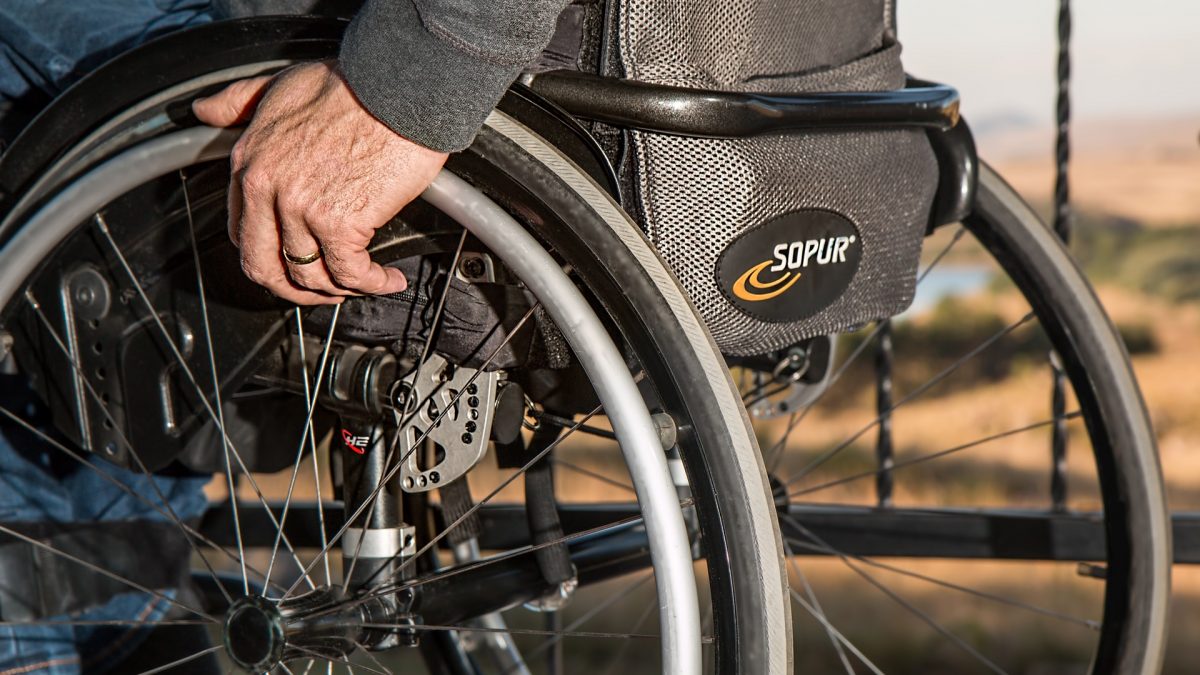
Important Things You Need To Do If You Have A Car
March 17, 2021
The Future Lawyer Weekly Update – w/c 15th March
March 18, 2021People born with a disability or who become incapacitated later on in life can get disability benefits in the United States. It may seem daunting, especially when applying for the first time. Different types of disability assistance are available for the kind of disability a person may have: physical, mental, psychological, and emotional. The following are the different federally-funded benefits that you can apply for if you can’t work because of a disability:
- Social Security Disability Insurance (SSDI)
It can be difficult for adults who were previously independent to find themselves disabled and unable to make a living. The funding for this government assistance comes from the pooled payroll taxes that employers, employees, and self-employed individuals regularly turn in.
Social Security Disability Insurance (SSDI) was created for such individuals, providing them with monthly assistance for a condition that may last more than a year. Those with disabilities that may eventually lead to death also qualify for SSDI.
You’re qualified for SSDI benefits if you’re fully insured and have a minimum of 20 quarters of coverage within the last 10 years. But, if you’re earning passive or unearned income such as alimony or life insurance benefits, you can find information on sites like www.terrykatzandassociates.com. Experts would recommend seeking out legal assistance in your area to receive detailed consultation and assistance with your application.
- Supplemental Security Income (SSI)
Supplemental Security Income (SSI) is another federally-funded financial assistance where both children under 18 years old and adults over 65 years old may qualify if blind or disabled. Not to be confused with SSDI, it assists those with little to no income. The amount is enough to cover necessities such as shelter, food, and clothing.
Those receiving SSI benefits may still be able to work and receive a salary under the condition that it should not surpass the Social Security Administration’s income limit. There will also be a reduction in your monthly assistance.
But, keep in mind that SSI benefits may vary in each state. An individual who moves across states may have to comply with a different set of rules. You could expect an increase or decrease in benefits once you settled in another state.
- Temporary Disability Assistance Program (TDAP)
This type of assistance is a type of short-term disability program unique to the state of Maryland. Other states with a similar program include Ney York, California, Rhode Island, Hawaii, and New Jersey.
As this program only applies to several states, you may want to seek the help of a social security attorney who will help you navigate the social security system and laws. As you must meet SSA standards, it’s better to have someone well-versed in social security regulations.
The TDAP is specifically for low-income individuals without dependent children. Eligible individuals can receive up to $USD185 every month. Individuals who qualify can apply through the Department of Social Services website or its local office.
As with SSDI, your doctor must be able to diagnose your disability to last a minimum of 12 months. You must also apply for benefits with the Social Security Administration.
- Social Security Disabled Surviving Divorced Spouse Benefits
This federal program is set by the Social Security Administration (SSA) where the benefits are awarded to the surviving disabled spouse of a worker who earned enough credits from the social security before death.
The SSA requires the beneficiary to be between the ages of 50 and 60 years old. The divorced heir must also be married for a minimum 10 years before the divorce was finalized. The divorced, disabled person must also be currently unmarried. If you’re a beneficiary, you may also want to contact SSA for additional eligibility requirements.
In Conclusion
If you or someone you know has a disability, you may want to check if you qualify for any of these government assistant programs. You may also want to find out more about state-regulated programs and requirements that can help you even more. Remember that if you can still work, some of these programs may not be suitable for you. Or you may get less than those who have little to no source of income. In this case, you can also acquire legal advice to determine where you can benefit from.





